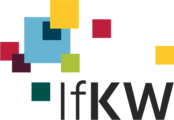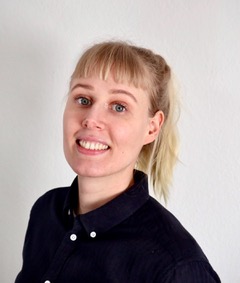
Here you can find information on external doctoral students of the Institute of Communication Science.
Information on completed doctorates can be found here.

Communication of measurement data and measurement uncertainties using the example of "Stadt of the Future""
Measurement data and measurement uncertainties determine our everyday life in many ways. However, the communication of measurement data and uncertainties is often neglected in science. Citizens are usually unfamiliar with basic measurement concepts. For this reason, Mona Wehming's cumulative dissertation deals with the visual communication of measurement data and measurement uncertainties to non-experts. An evidence-based dashboard will be developed, which will be evaluated and optimized as the project progresses. To do this, the perception of the dashboard should be recorded, as well as the understanding and trust of non-experts in the information presented.
The project is part of the Smart Metrology Campus (SMC) project group of the Physikalisch-Technische Bundesanstalt (PTB).
Aspects of media literacy
Digital media technologies and related communication and interaction behaviors are in a constant state of change and influence diverse social and individual areas. In this context, the extent to which competencies in dealing with digital media should be mastered or taught is being discussed.
In the context of her dissertation, Francine Meyer is researching the requirements of digitalization with regard to aspects relevant to teaching. One of the subjects of the study is the nationwide school project Make Your School - Eure Ideenwerkstatt. This is a project of Wissenschaft im Dialog and was introduced in the 2016/2017 school year. As part of the project, two- to three-day hackdays are held at schools. Under an open and workshop-like atmosphere, student develop and implement ideas to improve their own school. The hackdays contribute to improving digital education in schools and introduce young people to the range of digital and electronic tools. The scientific support focuses on the question of the extent to which such formats are suitable for promoting the transfer of knowledge of media and technological skills and competencies in the school context.
Trust in science: Identification and analysis of trust - describing features in communicative content
In the context of his cumulative dissertation, Justin Schröder deals with trust in science. He considers trust as a multidimensional construct and involves scientific actors on different levels. The investigation includes in a first step the identification of trust-describing characteristics in communicative content by means of qualitative content analysis. Subsequently, these results will be quantified and a methodology for automated text analysis will be developed.
The reviewers are Prof. Dr. Michael Brüggemann (University of Hamburg) and Prof. Dr. Monika Taddicken (TU Braunschweig).